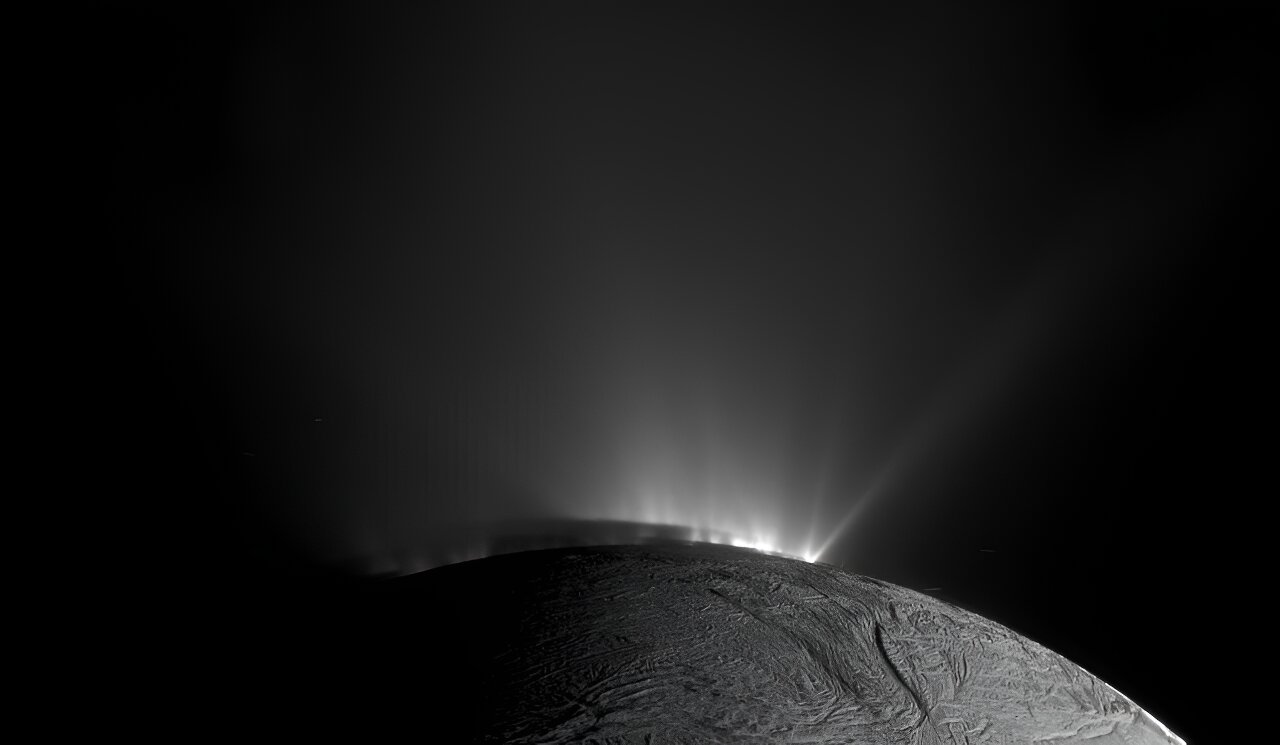Analysis of data from the Cassini spacecraft shows that there is amino acid in the ocean under the icy crust of Saturn’s moon Enceladus. In addition, scientists are convinced that there is a powerful source of chemical energy in its depths, possibly connected with life.

Important molecule found thanks to Cassini data
Scientists claim to have found a new molecule on Saturn’s moon Enceladus that is very important for life. We are talking about amino acid, which is considered a terrible poison, but in fact plays an extremely important role in biological processes on earth. Its molecule consists of hydrogen, nitrogen and carbon atoms.
The fact that there is an ocean of liquid water under the Enceladus crust has been known for many years, thanks to the close flights of the Cassini spacecraft. And various organic molecules have been found in those emissions more than once. Recently, scientists have discovered phosphorus there, which is also important for the existence of life.
And now we have a new discovery. Which is again based on Cassini data. The spacecraft fell on Saturn back in 2017, but over the years it had collected a lot of data, and scientists are still making discoveries just by analyzing it.
Amino acid and a source of chemical energy
Scientists discovered the molecule of an amino acid in this way. This time, the scientists applied statistical analysis to the data collected by the Cassini spectrometer. It studied individual ions and molecules of gases throughout its work, and now scientists have been able to properly evaluate them.
The most important result of the study is not at all in amino acids. Together with it, scientists have discovered a number of molecules showing traces of oxidation and very powerful chemical processes that produce a lot of energy in the depths of the Enceladus ocean.
Scientists have already found methane there, which may well be the result of biochemical reactions. However, its synthesis is in no way comparable to the oxidation processes in living cells. On Earth, they are the main source of energy in living cells. Therefore, the new discovery significantly increases the possibility that life exists on Enceladus.
According to phys.org
Follow us on Twitter to get the most interesting space news in time
https://twitter.com/ust_magazine


